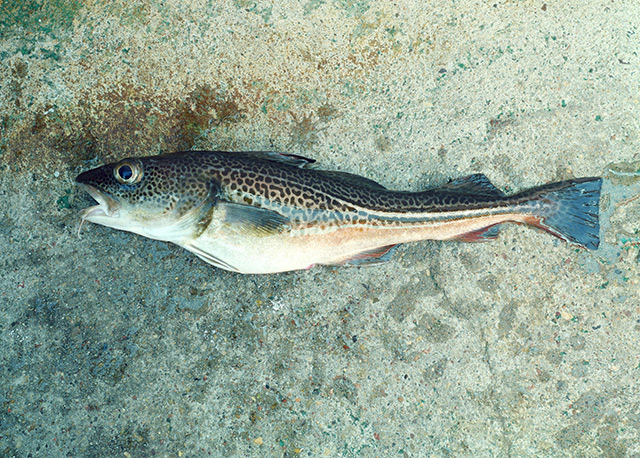The health benefits of eating cod
10/16/2019 / By Melissa Smith

Cod is a fish with a mild flavor and flaky white flesh that is available throughout the year. Atlantic cod and Pacific cod are two of its most common species. Pacific cod has lower calories than Atlantic cod. In addition to its mild flavor, cod became popular because of its health benefits.
Provides various nutrients – Cod provides good amounts of omega-3 and omega-6 fatty acids, and vitamins B12, B6, B3, E, and C. Cod is also rich in vitamin A, providing 90 percent of the daily recommended intake. It also contains phosphorus, potassium, selenium, and other trace minerals.
Helps build muscles – Cod is the perfect food for bodybuilders. Cod contains easy-to-digest amino acids like those found in whey protein and egg whites. Cod protein promotes the growth and regeneration of skeletal muscle after an injury, according to a study in the journal Applied Physiology, Nutrition, and Metabolism. Additionally, the proteins enhance the reduction of inflammation because of the high arginine content of cod. Eating cod also provides many nutrients that are important for bodybuilding, such as chromium, selenium, and zinc. It also reduces body fats without risking muscle loss.
Keeps the heart healthy – The omega-3 in cod makes it a great addition to a heart-healthy diet. Omega-3 fatty acids support heart health by increasing heart rate variability, according to a study in the journal Chest. Taking fish oil supplements, including cod oil, may protect from heart attacks when combined with an active lifestyle, maintaining a healthy weight, and getting enough sleep. Researchers from Harvard Medical School found that consuming fish like cod contributes to improved electrical properties of heart cells and prevents abnormal heart rhythms or arrhythmia.
Regulates blood pressure – Adhering to a diet rich in omega-3 fatty acids keeps your blood pressure at a normal level, according to a study called the International Study of Macro- and Micro-nutrients and Blood Pressure.
Lowers your risk of stroke – Eating fish such as cod may protect against stroke, especially ischemic stroke, according to a meta-analysis of cohort studies published in the journal Stroke. Consuming fish in general one to three times a month may prevent ischemic stroke.
May reduce triglyceride levels – Having high triglycerides can increase your risk of heart disease, and can raise your bad cholesterol levels. A study conducted on people with high triglycerides revealed that those who consumed two weekly servings of fish and other sources of omega-3 fatty acids, such as flaxseed, had lower triglycerides than those who didn’t.
May protect against cancer – Cod may protect against cancer, particularly colorectal cancer, because of its omega-3 fatty acids. Taking fish oil supplements daily may also hamper the spread of colon cancer in its early stages.
Prevents Alzheimer’s disease – Researchers at the University of California suggested that a DHA-rich diet may reduce the effect of the gene associated with the development of Alzheimer’s disease. They also found that normal levels of folate and vitamin B12 – which can be found in cod – have been associated with lower risks of dementia and other cognitive disorders.
Prevents deep vein thrombosis (DVT) – DVT occurs in the veins of the legs, thighs, or pelvis because of blood clots, causing swelling and pain. One study suggested that eating fish once a week, together with fruits and vegetables, can lower DVT risk, while eating red and processed meats can increase DVT risk.
Potential health concerns
While cod is considered an overall healthy food, it has potential health concerns. For one, the consumption of cod has been linked to mercury exposure. While cod may contain mercury, it still has lower mercury content than most fish.
Another concern is parasites. Like other fish, cod may harbor parasites if it’s consumed raw without previously being frozen. Therefore, it is important to cook or freeze cod first before eating. You can eat cod baked, broiled, or grilled and pair it with healthy side dishes.
Sources include:
Submit a correction >>
Tagged Under:
This article may contain statements that reflect the opinion of the author
RECENT NEWS & ARTICLES
COPYRIGHT © 2017 SUPERFOODS NEWS





















